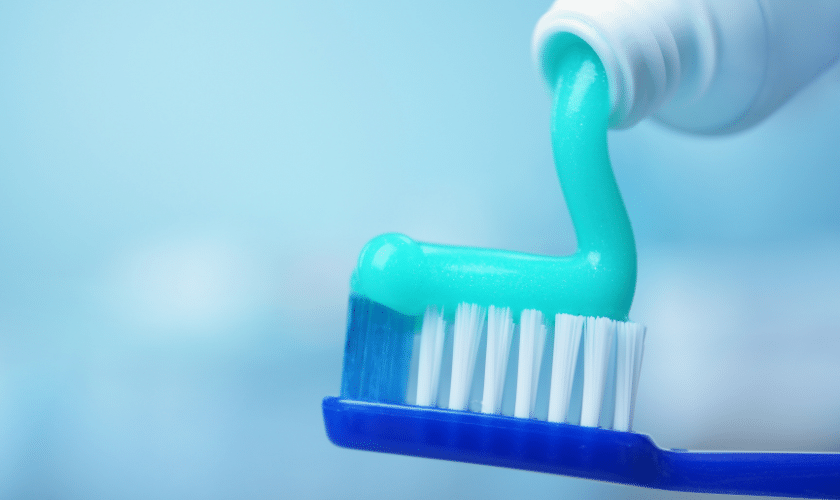
Welcome to our blog post all about fluoride toothpaste! In this article, we will dive deep into the world of dental care and explore the importance of fluoride in your toothpaste. From understanding recommended fluoride content to exploring different types of fluoride toothpaste, we’ve got you covered. We’ll also discuss how to choose the right fluoride toothpaste for your needs while highlighting both the potential risks and benefits associated with its use. And don’t worry, if you’re looking for alternative options, we’ll touch on those, too. So, let’s get ready to smile confidently as we unravel the secrets behind finding the best fluoride toothpaste for you!
The Importance Of Fluoride In Toothpaste
When it comes to maintaining good oral health, fluoride plays a crucial role in protecting our teeth. So, what exactly makes fluoride so important? Well, let’s break it down.
First and foremost, fluoride helps to strengthen tooth enamel. Enamel is the outer layer of our teeth that acts as a protective shield against decay-causing bacteria and acids. Over time, however, this enamel can become weakened by everyday activities such as eating and drinking acidic foods or beverages. This is where fluoride steps in to save the day!
By incorporating fluoride into your daily dental routine through toothpaste, you create an extra line of defense for your pearly whites. Fluoride actually works to remineralize the enamel, making it stronger and more resistant to acid attacks.
Not only does fluoride help prevent tooth decay by strengthening enamel, but it also can reverse early signs of decay. This means that if you catch those pesky cavities at their initial stages – before they wreak havoc on your teeth – using a fluoride toothpaste can potentially stop them from progressing further.
But wait… there’s more! Fluoride doesn’t just benefit kids whose teeth are still developing; adults can reap its rewards too! Research has shown that using fluoridated toothpaste reduces the risk of cavities in both children and adults alike.
So there you have it – the importance of fluoride in toothpaste cannot be overstated. By incorporating this mighty mineral into your daily oral care routine, you’re taking proactive steps toward preventing cavities and promoting long-lasting dental health.
What Is The Recommended Fluoride Content?
Fluoride is a key ingredient in toothpaste that helps to prevent tooth decay and strengthen enamel. But what exactly is the recommended fluoride content in toothpaste? Let’s explore this important question.
The American Dental Association (ADA) recommends that adults and children over the age of two use fluoride toothpaste with a concentration of 1,000-1,500 parts per million (ppm). This level of fluoride has been shown to protect teeth against cavities effectively.
For young children under the age of two, it is recommended to use a smear or rice-sized amount of fluoridated toothpaste. It’s important to supervise them while brushing and ensure they spit out the excess paste instead of swallowing it.
It’s worth noting that different countries may have varying recommendations for fluoride content in toothpaste. However, following the ADA guidelines can help ensure you are using a safe and effective product.
When choosing a fluoride toothpaste, look for one that carries the ADA Seal of Acceptance on its packaging. This seal indicates that the product has met strict criteria for safety and effectiveness as determined by dental professionals.
Remember, using too much fluoride can lead to fluorosis – a condition characterized by white spots on teeth. On the other hand, inadequate exposure to fluoride may not provide sufficient protection against cavities.
Finding the right balance is crucial for maintaining good oral health. If you need clarification on which fluoride toothpaste is best for you or your family members, consult with your dentist, who can provide personalized recommendations based on your specific needs.
Different Types Of Fluoride Toothpaste
When it comes to fluoride toothpaste, there are several options available on the market. Each type offers unique benefits and features that cater to specific dental needs. Let’s explore some of these different types:
1. Regular Fluoride Toothpaste: This is the most commonly used type of fluoride toothpaste. It contains a standard amount of fluoride (usually around 1000-1500 parts per million), which helps strengthen enamel and prevent cavities.
2. Sensitivity Formula: If you suffer from sensitive teeth, this type of toothpaste is designed for you. It not only contains fluoride but also includes ingredients that help alleviate sensitivity by blocking nerve pathways in your teeth.
3. Whitening Toothpaste: Do you desire a brighter smile? Whitening toothpaste contains additional abrasive agents or chemicals to remove surface stains and lighten the shade of your teeth over time while still providing the necessary dose of fluoride.
4. Children’s Fluoride Toothpaste: Kids have different dental needs compared to adults. Hence, it’s important to choose a toothpaste specifically formulated for them with an appropriate level of fluoride (typically around 500-1000 parts per million). These usually come in fun flavors and colorful packaging to make brushing more enjoyable for children.
5. Prescription-Strength Fluoride Toothpaste: For individuals with high-risk factors for cavities or those who have had extensive dental work done, prescription-strength fluoride toothpaste may be recommended by their dentist. These contain higher levels of fluoride than regular toothpaste and require a prescription from your oral healthcare provider.
Remember, when choosing a fluoride toothpaste, always look for one approved by reputable dental associations, such as the American Dental Association (ADA) seal on the packaging.
Choosing the Right Fluoride Toothpaste For You
When it comes to choosing the right fluoride toothpaste for you, there are a few factors to consider. First and foremost, look for a toothpaste that has the recommended fluoride content. This is important because fluoride helps strengthen your teeth and prevent cavities.
Next, think about any specific dental concerns or needs you may have. If you struggle with sensitive teeth, look for a toothpaste specifically formulated to address this issue. On the other hand, if you’re looking to whiten your teeth, choose a toothpaste that includes whitening agents.
Consider your personal preferences as well. Some people prefer a minty flavor, while others may opt for something more mild or even fruity. It’s also worth noting that some toothpastes are marketed toward children and have fun flavors or characters on the packaging.
Remember any potential allergies or sensitivities you may have. Read the ingredient list carefully to ensure there’s nothing in the toothpaste that could cause an adverse reaction.
In conclusion (not really concluding here!), choosing the right fluoride toothpaste is all about finding one that meets your specific needs and preferences while providing effective cavity protection through its recommended fluoride content.
Potential Risks And Benefits Of Using Fluoride Toothpaste
When it comes to oral care, fluoride toothpaste has become a staple for many people. But what are the potential risks and benefits of using fluoride toothpaste? Let’s take a closer look.
Benefits:
One of the main advantages of using fluoride toothpaste is its ability to prevent cavities. Fluoride helps strengthen the enamel on your teeth, making them more resistant to decay. This can be especially beneficial for those who are prone to dental issues or have a high-sugar diet.
Another benefit is that fluoride toothpaste can help remineralize early-stage tooth decay. It works by replacing minerals in areas where the enamel has deteriorated, helping to reverse the damage before it becomes worse.
Risks:
While fluoride toothpaste offers numerous benefits, there are also some potential risks associated with its use. One concern is fluorosis, which occurs when excessive amounts of fluoride are ingested during childhood while teeth are still developing. This can lead to white spots or streaks on the teeth.
In rare cases, some individuals may experience an allergic reaction or sensitivity to fluoride toothpaste. Symptoms may include mouth sores, rash, or swelling. If you notice any unusual reactions after using fluoride toothpaste, it’s important to consult your dentist promptly.
Finding Balance:
It’s crucial to strike a balance between reaping the benefits and avoiding potential risks when using fluoride toothpaste. Most dental professionals recommend using a small pea-sized amount for brushing twice daily under adult supervision for children below six years old.
Whether you choose to use fluoridated or non-fluoridated alternatives will depend on several factors, such as age, oral health status, and personal preference. Consulting with your dentist will help determine what’s best for you and your family’s unique needs.
Alternatives To Fluoride Toothpaste
- If you’re looking for alternatives to fluoride toothpaste, you’re not alone. Many people are seeking natural options that still provide effective oral care. Fortunately, there are a few alternatives worth considering.
- One option is baking soda toothpaste. Baking soda has been used for centuries as a natural teeth whitener and cleanser. It helps neutralize acids in the mouth and remove plaque buildup. However, it’s important to note that baking soda alone may not be enough to prevent cavities.
- Another alternative is herbal toothpaste. These types of toothpaste often contain ingredients like neem, clove oil, or tea tree oil, known for their antibacterial properties. While they may offer some benefits in terms of gum health and fresh breath, herbal toothpaste might need to provide more protection against cavities.
- Charcoal toothpaste has gained popularity recently due to its ability to remove surface stains from teeth effectively. Activated charcoal acts like a magnet, attracting and absorbing stains caused by coffee or red wine consumption. However, similar to other alternatives mentioned before, it’s important to consider whether charcoal toothpaste provides adequate cavity prevention.
- Ultimately, when choosing an alternative fluoride-free toothpaste option, make sure it meets your specific needs while keeping your dental health as a top priority! Remember, always consult with your dentist about which option would work best for you!
Fluoride toothpaste plays a crucial role in maintaining optimal dental health. It helps to strengthen the enamel, prevent tooth decay, and reduce the risk of cavities. When it comes to choosing the right fluoride toothpaste for you, consider factors such as your age, oral health needs, and personal preferences.
Remember that not all fluoride toothpastes are created equal. Look for products with a recommended fluoride content of 1,000-1,500 parts per million (ppm) for adults and children over six years old. For children under six years old, opt for a lower fluoride concentration specifically formulated for their age group.
While using fluoride toothpaste has numerous benefits, it’s essential to be mindful of potential risks such as fluorosis or allergic reactions. If you have any concerns or specific dental conditions, consult with your dentist, who can provide personalized recommendations.
If you prefer alternatives to traditional fluoride toothpaste or want additional options in your oral care routine, there are natural and herbal alternatives available on the market. However, keep in mind that these may not provide the same level of protection against cavities as fluoridated products do.
Making informed decisions about your oral hygiene practices will contribute greatly to maintaining healthy teeth and gums throughout your life. Remember to brush twice daily with a recommended amount of fluoride toothpaste and complement it with regular flossing and professional dental check-ups.
Looking For A Dentist In Phoenix, AZ
Dental worries? Don’t suffer in silence! Our Phoenix dentist at Dental Home Family Dentistry Phoenix is here to listen, advise, and schedule your visit.


